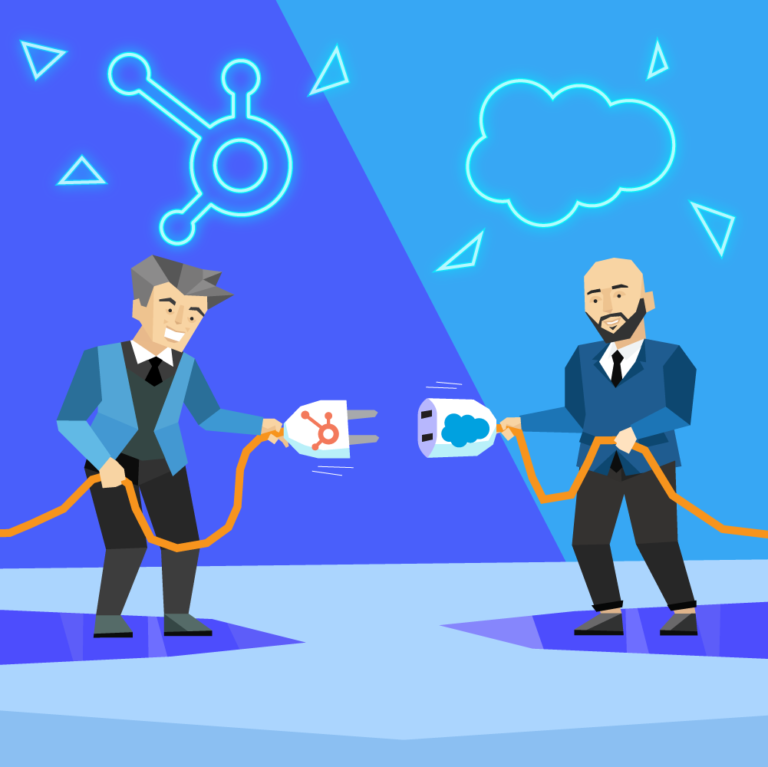Inbound Sales: Create Salespeople Your Prospects Will Want to Speak To

The modern landscape of successful corporate operations has changed globally over the last few decades. With this change, business executives have been forced to re-evaluate their strategies and focus on new ways to drive sales and corporate growth. As noted in The Sales Acceleration Formula (Mark Roberge, 2015), while innovation has become one of the key areas that business leaders seek to expand upon to increase sales and outsell the competition, the creativity of such a large pool of competitors has made that goal difficult to fulfill [1]. In order to drive organic growth, having a great sales team is key in order to drive sales away from competitors and to your business.
The Optimal Inbound Salesperson and the Modern Platform of Selling
Successful selling has become a coveted art in this day and age, partly because the art of selling has changed drastically over the years to an inbound sales approach. While outbound efforts dominated the sales strategy of most companies some decades ago, it is the inbound approach to sales and marketing that is better aligned with today’s buyers. With the advent of the World Wide Web, Google, widespread Wi-Fi, Social Media and mobile smart-devices, knowing where prospective customers reside (on the Internet) and attracting them to your business via blogs, social media, PPC, SEO and websites, has become the recommended approach of corporate marketing and sales.
This form of online marketing or inbound marketing – and the very nature of the expansive information age that we live in – has its own challenges. While the Internet and Google have helped to aid the development of e-commerce more than almost any other tools in existence, those very tools have allowed prospects to conduct thorough research on almost any service or product imaginable, before ever engaging with a sales team.
This presents unique challenges to today’s salesperson – though searching for prospects is still a valuable business mechanism – many prospects do not feel the need to communicate with a salesperson until they are ready to become a customer. Due to this shift, the generic “script” that often encompassed the sales pitch of old no longer works. Attempting to use such a pitch would not aid the conversion of the lead into a customer for the reasons already mentioned; modern buyers are self-educated prospects who are generally sold before even speaking to a salesperson. In fact, the process that buyers use to decide on whether to pursue a product or service is generally greater than 60 percent complete before the salesperson even comes into the picture.
The question that remains is, what role and function does the salesperson fulfill in the modern ecosystem of corporate selling? The answer is that the salesperson is primarily a giver and thus must have something key to give to a prospective customer or lead. Because no prospect is omniscient, there will often be gaps of knowledge in the buyer’s mind, and an efficient salesperson will attempt to fill those gaps, such as with helpful questions. Such a question could comprise of inquiring about a product that the prospect has used in the past; the key is to determine the area of interest and the goal of the prospect in order to present a targeted piece of information that will convince him or her as to why becoming a customer is the correct choice. The ultimate key is that a salesperson’s role is to give whatever the prospect needs to be converted into a customer.
How to Hire Today’s Perfect Inbound Salesperson
Today, being a successful salesperson requires more than just having general phone-sales experience and a large pool of prospect’s contact information. Today, very specific skills are required, and though each company requires different sales teams with a different skill set, a general formula of desirable characteristics can be described, which is composed of traits that directly benefit your prospects and your sales process. The eight most desirable characteristics of a salesperson are:
- Being a great listener
- Their previous environment matching your company culture
- Being a problem solver
- Having a go-getter attitude
- Having sufficient industry knowledge
- Demonstrating composure
- Having a persistent and persevering mindset
- Being comfortable with the uncomfortable.
Testing for these specific traits is an important part of any interview process. Below is a brief elucidation on each trait:
- Great Listener: It is impossible to sell a product or service without first understanding the needs of a prospect or lead, and the main way to understand what they need is to listen to them. As a giver, a salesperson is thus a lead nurturer, and according to statistics, 50 percent more sales occur due to nurtured leads by companies, while saving 33 percent in costs compared to non-nurtured leads (Forrester Research) [2].
- Environment: A salesperson – like most employees – will work best when their previous workplace experience is matched by your company’s culture and does not greatly conflict with what they are used to. This will allow them to quickly integrate into your company in order to deliver quality work.
- Problem Solver: Perhaps the most important trait is to have excellent problem solving skills, which includes being able to think “outside of the box.” All products and services that exist – that any prospect or lead may seek – do so to solve a problem. Thus, along with being a great listener, giving the prospect a solution to their problem – meeting the need that they have via a sale of your product or service – is pivotal, which requires knowing how to solve problems.
- Go-Getter: The personality and mindset (i.e. emotional intelligence) of a salesperson is key to delivering a sale to a prospect. Being a persistent, ambitious and assertive salesperson is a fundamental requirement, as statistics show that up to five follow-up communications are required for 80 percent of successful sales after an initial meeting (The Marketing Donut), whereas only two attempts on average are made by the average sales person (Sirius Decisions), and 44 percent of salespeople fail to continue contacting a prospect after one follow-up (Scripted) [2].
- Industry Knowledge: Experience and knowledge of the industry that your salesperson works in is an apparent requirement for an efficient salesperson, as lacking sufficient knowledge can stop a prospect from becoming a customer due to being unable to solve their problems and answer their questions.
- Composure: A professional demeanor and composure help to exude a professional image for your company and brand.
- Perseverance: A successful salesperson is one that perseveres and persists with a prospect until he or she is won over as a customer. As noted above, frequent follow-up communication is key to closing today’s deals and the willingness to persevere through each follow up will be the difference in the long run.
- Stoic: Being able to flourish in any situation and succeed even when uncomfortable is a trait that will enable a salesperson to effectively make sales even when placed in situations that may create discomfort.
There are other traits that are key for a salesperson to have, such as varying forms of emotional intelligence, “soft skills,” work ethic, and – because a salesperson operates as the leader of a sale – basic leadership qualities.
The Most Efficient Way to Train Today’s Inbound Salesperson?
After hiring a qualified salesperson, training them in a hands-on way is the next step. Training them by simply having them glean company protocol and parameters from afar is not a sufficient system for grooming a successful salesperson. It is necessary to establish a comprehensive training system that teaches them the ins and outs of your company’s operations and protocols, and also teaches them:
- In-depth knowledge of your buyer-personas
- How to delight customers for customer retention
- Your sales opportunity management methodology
- How to integrate with the marketing team while still spending time only on sales qualified leads
- How to create tailored sales methods for different buyer personas
- How to identify and navigate negative buyer personas
- How to combine it all in order to use targeted methods of sales methodologies based on the aforementioned buyer personas and the corporate customer relationship management (CRM) system.
One of the most important keys to being a successful salesperson is understanding the that your buyer personas face so that they can aid in the successful, personalized targeting of specific groups of prospects. One way to aid the process is to utilize role playing between you and your salesperson (switching the roles between buyer persona and salesperson), which helps to complement the buyer persona sales-strategies by providing a context for corporate operations.
In addition to above, it is imperative that your salesperson understands the in-depth details of your company sales management methods to better aid the sales process of a prospect regardless of the stage of the sales cycle that he or she engages with the salesperson at.
Establishing such a robust system will assist with the efficient selling of your products or services to a potential multitude of different buyer personas. This helps your salesperson to align their sales methods with the varying steps in the buyer’s journey to becoming a customer, which subsequently requires the salesperson to adapt to different sales strategies based on the buyer’s placement in the overall sales process. Understanding these steps is the key for proper sales strategies, as failure to comprehend this could result in a strategy that is either too fast or too slow, potentially resulting in the failure to convert a prospect or lead into a customer.
A salesperson would also benefit from being well-rounded with respect to how other departments in your company operate. This can aid the salesperson in problem-solving by equipping them with knowledge that may help a prospect who has specific, departmental-based questions or who is unsure about becoming a customer. A salesperson should generally work with the marketing department and be exposed to their operations, but should also be exposed to the operations and strategies of your consultants, and – depending on the type of products that your company offers – your product engineers, designers, data analysts, etc.
Nurturing and Coaching Today’s Inbound Salesperson
As the needs of customers change with the changes in society, companies should remain adaptable and should grow to meet those needs. Growth in your company means a requirement for growth among your sales teams. Hence, coaching, mentoring, continued education, corporate training, and presentations are all good ways to make sure that your salespeople are always up-to-date on industry standards and are thus able to operate as effectively as possible. In addition to this, giving your sales groups mandatory reading assignments – that align with the products and services that your company offers in relation to your industry and the buyer personas that you serve – along with having them participate in company blogs and internal projects, all facilitates their growth and continued learning of the art of successfully selling your company’s products to today’s changing buyer.
A successful salesperson is one that understands how to effectively give a prospect the right information at the right time, needed to turn them into a customer, which requires specific skills, an understanding of your company’s buyer personas, knowledge of the goals & needs of your prospects, and the guidance of your company executives to train them and assist them with their continued development.








